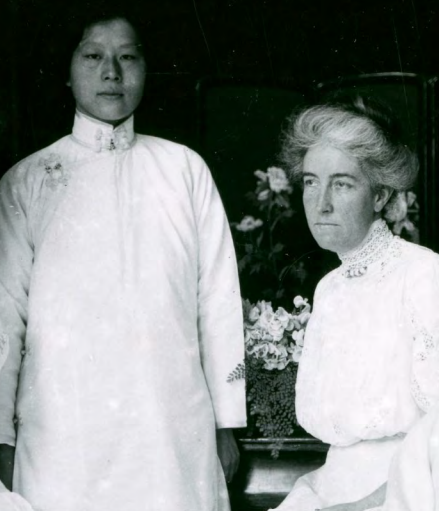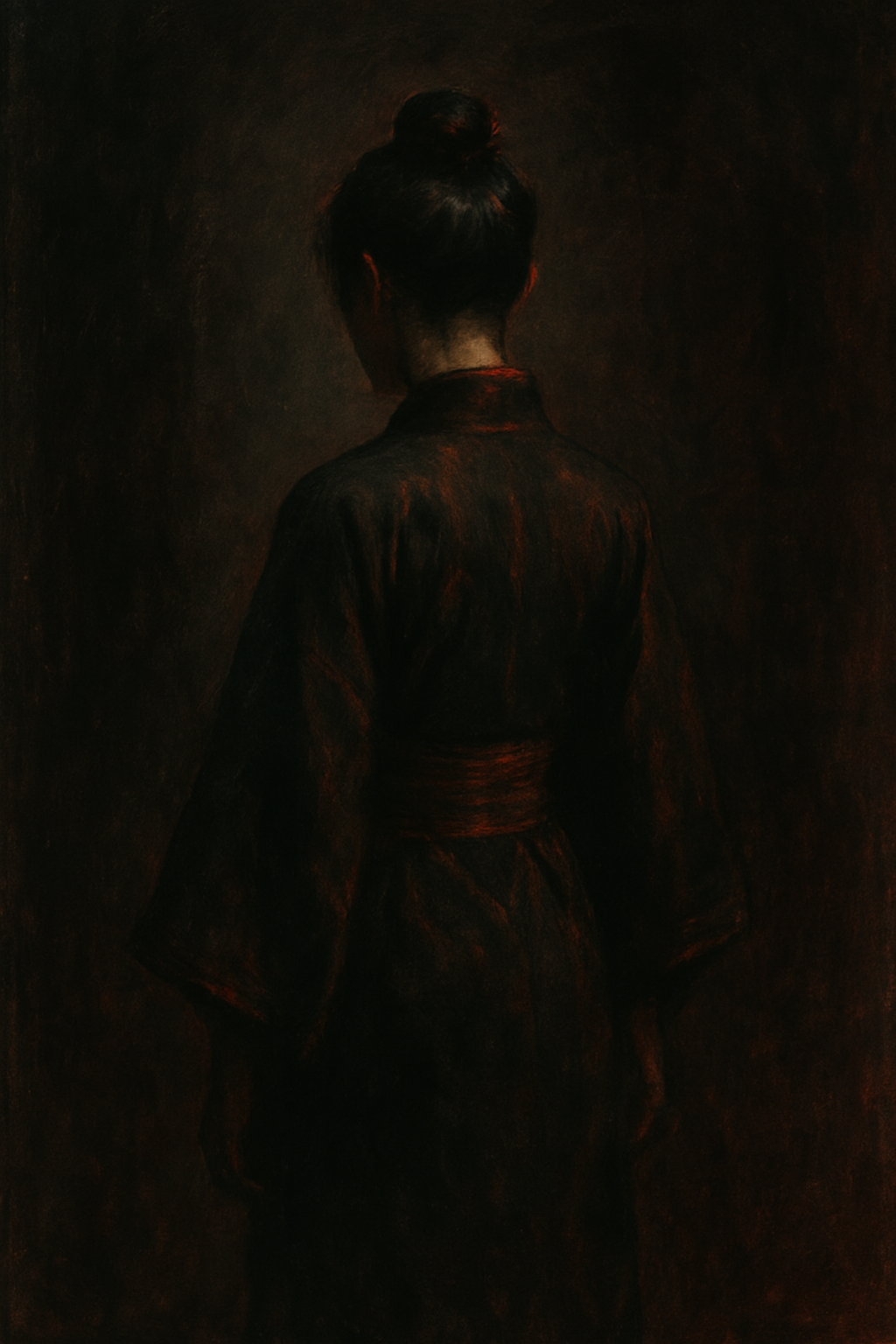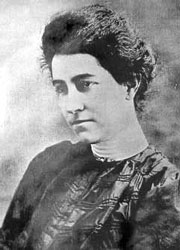Tien Fuh Wu's fight to rescue enslaved girls

Tien Fuh Wu (left) with Donaldina Cameron, Presbyterian Mission House, San Francisco, ca. 1908–1915. Photo by Louis J. Stellman.
Tien Fuh Wu was born in Zhejiang in 1886. Her father sold her into slavery some time between the ages of 6 and 10 to pay off his gambling debts. She ended up a servant in a San Francisco gambling den, so abused that the neighbors noticed and complained1This was before the modern belief that children should not be beaten. Her owners must have been something unusual for the neighbors to become even mildly concerned, let alone to go to White missionaries against the tong-associated gambling den owners.. She did not know her birthday, and celebrated her rescue day instead, January 17, 1894.
Wu grew up in the care of her rescuer, the missionary Donaldina Cameron in the Occidental Mission Home for Girls in Chinatown. She left a first-hand account of her life calling her childhood "carefree". At the Mission House Wu learned to read and write in both English and Chinese. She went on to boarding school in Philadelphia and then Bible College in Toronto, but came back to San Francisco in 1911 to help rescue thousands of other children. Cameron called her "Blessed Tien" for her help.
Being Chinese herself, and scarred from the abuse she endured as a child, it was easier for Wu to get the slave girls to trust her. Wu was more hated than any other missionary, except perhaps Cameron herself, because the slave owners perceived her as a traitor. She received terrible threats, and after each rescue had to be guarded for weeks when she went outside.
Wu turned down multiple suitors and followed Donaldina Cameron into retirement, living in a small cottage next to her house in Palo Alto. When she died she was buried next to Cameron.
1This was before the modern belief that children should not be beaten. Her owners must have been something unusual for the neighbors to become even mildly concerned, let alone to go to White missionaries against the tong-associated gambling den owners.This was before the modern belief that children should not be beaten. Her owners must have been something unusual for the neighbors to become even mildly concerned, let alone to go to White missionaries against the tong-associated gambling den owners.
Wu grew up in the care of her rescuer, the missionary Donaldina Cameron in the Occidental Mission Home for Girls in Chinatown. She left a first-hand account of her life calling her childhood "carefree". At the Mission House Wu learned to read and write in both English and Chinese. She went on to boarding school in Philadelphia and then Bible College in Toronto, but came back to San Francisco in 1911 to help rescue thousands of other children. Cameron called her "Blessed Tien" for her help.
Being Chinese herself, and scarred from the abuse she endured as a child, it was easier for Wu to get the slave girls to trust her. Wu was more hated than any other missionary, except perhaps Cameron herself, because the slave owners perceived her as a traitor. She received terrible threats, and after each rescue had to be guarded for weeks when she went outside.
Wu turned down multiple suitors and followed Donaldina Cameron into retirement, living in a small cottage next to her house in Palo Alto. When she died she was buried next to Cameron.
1This was before the modern belief that children should not be beaten. Her owners must have been something unusual for the neighbors to become even mildly concerned, let alone to go to White missionaries against the tong-associated gambling den owners.This was before the modern belief that children should not be beaten. Her owners must have been something unusual for the neighbors to become even mildly concerned, let alone to go to White missionaries against the tong-associated gambling den owners.

